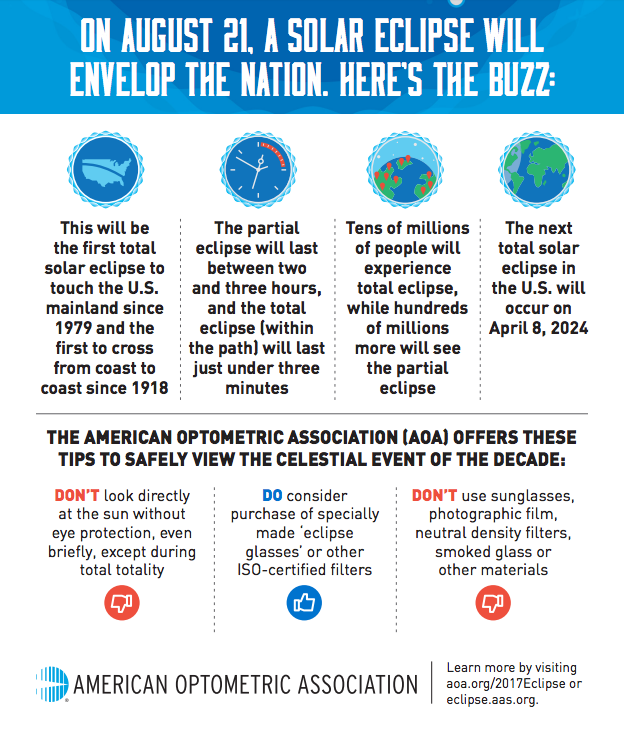A solar eclipse occurs when the Moon passes between the Sun and the Earth, and then the Moon fully or partially blocks the Sun. Here in New Jersey, we will be getting a partial solar eclipse. Unless you’re inside the band of totality (we are not), you must use special eclipse viewers to protect your eyes from the sun’s harmful rays.
Staring at the sun is always bad for your eyes – eclipse or not. Solar retinopathy is damage to the eye’s retina, particularly the macula, from prolonged exposure to solar radiation leading to permanent vision loss. And length of time doesn’t matter – just a few seconds can cause damage!

More tips:
- Be aware that unsafe eclipse glasses bearing the ISO and certification logos are being sold. The American Astronomical Society has a list of reputable manufacturers and authorized dealers here: https://eclipse.aas.org/resources/solar-filters
- Also keep in mind that the ISO standard wasn’t put into place until 3 years ago, so reusing old eclipse glasses may not be a good idea.
- If you plan on watching the eclipse though a camera, telescope, or binoculars, buy a solar filter to place over the end of the lens.
- Make sure if you’re using welding filters they are Shade 12, 13 or 14.
- If your solar filter is damaged, discard it.
- Always supervise children if using solar filters.
Another way to safely watch the eclipse is through NASA’s app: go.nasa.gov/2qRXZsY
For more information on eclipse safety, please refer to the American Optometric Association website: https://eclipse.aas.org/resources/solar-filters
And if you should experience any discomfort or vision problems following the eclipse, visit your local eye doctor for a comprehensive eye examination.
Stay safe!
![]()

Add Comment